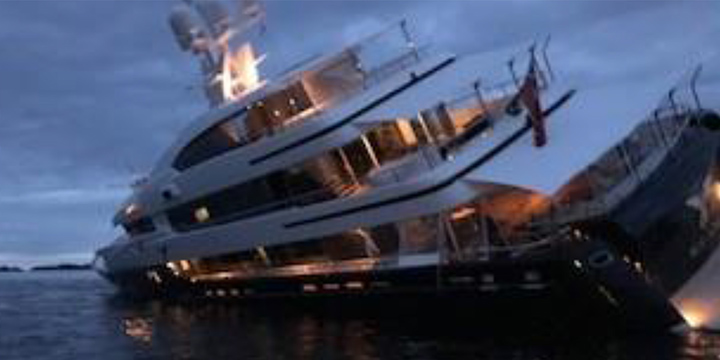Yacht in Greenland grounding was poorly prepared for polar navigation, finds flag state
5 June 2020

Isle of Man marine authorities are calling for vessels in remote areas to take more care, following a case in which a 1,076gt superyacht ran aground at a speed of 14.5 knots in sensitive polar waters.
The Manx-flagged Ice Angel was sailing off the southern coast of Greenland in September 2018, with 15 crew and four passengers onboard, when it struck an uncharted rock. The yacht suffered extensive damage, including a flooded bow thruster compartment, seawater ingress into accommodation and the engineroom, and cracks in the hull.
Ice Angel developed a 40-degree list and had to be evacuated. No one was injured, but ruptured fuel oil tanks caused what was described as 'minor pollution to the marine environment'.
In its flag state investigation, the Isle of Man Ship Registry found numerous deficiencies in passage planning and use of charts.
In particular, Ice Angel was using a Transas Electronic Chart System as its primary navigation tool rather than as an aid. The yacht was not equipped with an approved ECDIS, as stated on its safety equipment certificate, and no clearing distances and hazards were marked on the paper charts.
Investigators said International Maritime Organization guidance on navigating off the coasts of Greenland cautioned about the limitations of hydrographic information in the region, stressing that 'depth conditions will be unknown or depth data will be of poor quality in large areas'.
The report notes that the chart for the area warns of inadequate seafloor coverage, but the passage plan had failed to include any special risk mitigation measures.
The yacht's speed meant that the echo sounder proved ineffectual and gave the navigation officer little or no time in which to respond to signs of approaching shoal water, the report adds.
Noting that the case highlights the importance of a well-planned and well executed voyage plan at a safe speed, the report recommends that vessels operating in remote areas with poor hydrography should sail on known 'good' tracks previously made by other yachts and ships.
Tags
